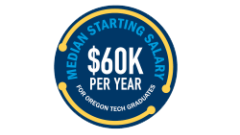
Why are cover letters important?
Your resume should be customized to a specific job by using the keywords you find in the job post, and the cover letter is your additional opportunity to customize your application to a specific job by conveying your enthusiasm and by expanding on what you have briefly touched on in your resume. You are demonstrating that you are a great fit for the specific position, that you can communicate clearly, and that you have researched the organization. You are differentiating yourself from other applicants who may have similar qualifications.
Do recruiters even read cover letters?
Not if they are boilerplate and boring. If you REALLY want that job, take the time to write a cover letter that details your enthusiasm and the skills you will bring to the role. There are often several candidates who are equally qualified, and a strong cover letter can get you that interview.
What is the purpose of a cover letter?
- To introduce you to the employer and clarify the position being applied for; when, where, or how you learned about the position and/or the organization; and why you are applying for the position.
- To highlight your strengths and qualifications for the position. This is not a repeat of the resume, but a select review of specific areas from your background that are relevant to the particular position.
- To encourage the next step in the application process: e.g. "I look forward to having the opportunity to meet and discuss my qualifications in detail," "I can be reached at (240) 555-7656."
What should the overall structure be?
Section One (a brief paragraph):
Tell who you are, how you learned about the position, why you have an interest in the position and the organization. Be sure to indicate the specific position for which you are applying, as an employer may have several positions open at the same time. Additionally, if you have networked and have a personal contact within the organization, this is the point at which that individual's name should be mentioned, if you have that person’s permission. Follow with a brief statement that you feel you are a strong candidate.
Section Two (text alone, or preferably some combination of text with a bulleted list or a table):
Describe your strengths and qualifications as they specifically relate to this particular position. Use the job description to identify exactly what qualifications they seek, and then describe how you are a good fit because you have many (but probably not all) of those qualifications. Talk about what you know about the organization to enhance your argument that you are a good fit with their culture.
Section Three (a brief paragraph):
"Let's get together" is the goal of the final paragraph. Be sure to actively convey your interest and strong desire for an interview. Remember, the primary purpose of the resume and cover letter is to obtain an interview, not to get you a job.
|
Stumped about how to communicate well in other types of communication in your job search? Read on!
1. If You Want to Reach Out to Your Network for a Job
You probably know a lot of awesome people with even more awesome careers—and when you’re job searching, you should use this to your advantage! Use this template to reach out to colleagues, friends, and family to see if anyone has a lead on a job opening in you field. Even if you don’t get a direct response, people will now know to keep you in mind if an opportunity comes up.
Get the Template
2. If You Want to Connect With Someone on LinkedIn
You’re on a company profile page and see that an alumna of your university works there. Score! But, how do you connect with her when you’ve never actually met? Try LinkedIn. This article provides 10 templates for every situation you may come across when adding others on the platform, whether they’re one connection away or seemingly out of reach.
Get the Templates
3. If You Want to Follow Up on Your Application
You finally sent in your resume and cover letter and now, well, you wait. And wait. Have I always be this impatient? We suggest following up about two weeks from the date you submitted your application by using an email along these lines. Now, you can check “worrying about being too persistent” off your list of job search worries.
Get the Template
4. If You Want to Send a Memorable Thank You Note
You made it through the actual interview—either on the phone or in person—and you know the drill: Send a thank you note. This article will walk you through not only how to say thank you over email, but also how to do it in a way that leaves a lasting impression.
Get the Template
5. If You Want to Resign from Your Current Position
All of your hard work paid off, and you just got a new job! But, well, now you have to tell your current one. After breaking the news to your boss in person (because it’s the nice, professional thing to do), send this email version of your official resignation.
Get the Template
6. If You Want to Turn Down a Job Offer
You got the job—but this time you don’t want it. (Insert Debbie Downer noise here.) For whatever reason—and several are valid!—you think your current company or another opportunity is a better fit. Before you stress about angering everyone who just took time to interview you, check out how to turn down a job offer gracefully.





